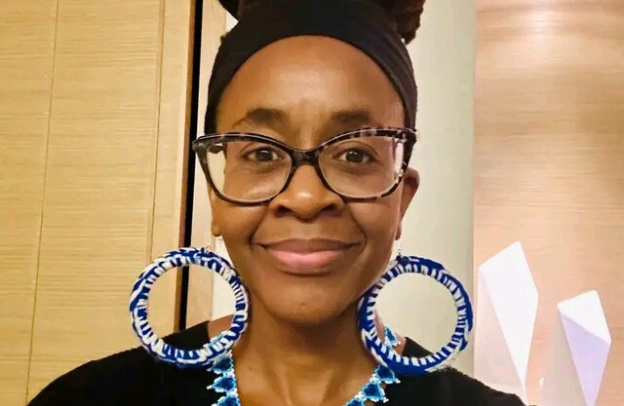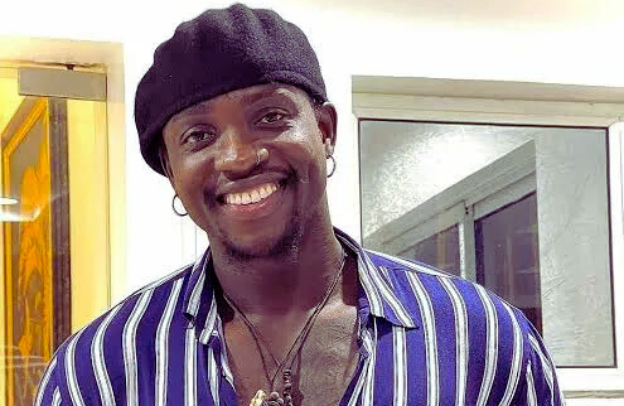Nnedi Okorafor: The African Diaspora Influencer Who is Reshaping the Future of Creativity and Culture

Have you ever wondered what it takes to create something that not only connects deeply with your roots but also pushes boundaries in unexpected ways? Or how a simple yet powerful connection to your culture can become a catalyst for global recognition? Nnedi Okorafor’s journey of perseverance, creativity, and cultural resurgence offers a blueprint for entrepreneurs and creatives in the African diaspora looking to leave a lasting mark on the world.
Learn How to Leverage Your Story through our Story To Asset Transformation (S.A.T) Framework.
Nnedi Okorafor’s journey is a story that unfolds across the pages of science fiction, fantasy, and African folklore. Doing so, breaks down boundaries in literature and challenges the way we understand identity, heritage, and what it means to tell your story.
A few decades ago, American publishers dismissed Okorafor’s work as “unrelatable” and “confusing.” Today, she has not only carved a unique space for herself in speculative fiction but has become one of the most influential voices in the literary world, securing a seven-figure deal for her latest novel, The Africanfuturist.
What changed? The global cultural landscape has shifted, and Okorafor’s triumph speaks volumes about the African diaspora’s evolving influence on the creative industries.
It’s not just her writing that has caught the world’s attention—it’s the unapologetic embrace of African heritage, history, and mythology in every narrative she spins. As a creative entrepreneur within the diaspora, Okorafor’s journey is both a prove of what is possible and an invitation to all of us to rethink how we can elevate our own voices in the global marketplace.
Who is Nnedi Okorafor?
Nnedi Okorafor is a powerful storyteller whose work transports readers to rich, imaginative worlds that fuse African culture with the realms of science fiction and fantasy. Writing for all ages—from adults to young adults and children—Okorafor’s stories stand out for their unique blend of African mythology, speculative fiction, and thought-provoking themes.
See also How To Stand Out From 5.52 Billion People Online Today: There Is A Secret In Your Hands
Through her acclaimed works like the Binti series, Who Fears Death, Akata Witch, and Lagoon, she not only entertains but also delves into deeper issues like racial inequality, social justice, and personal identity.
Okorafor has earned numerous prestigious awards, including the Hugo, Nebula, and World Fantasy Awards, cementing her place as one of the most influential voices in modern speculative fiction.
Born in Cincinnati, Ohio, on April 8, 1974, to Igbo parents who emigrated from Nigeria during the country’s civil war, Okorafor grew up in the suburbs of Chicago. Despite facing a major health setback at the age of 19, when surgery to correct scoliosis left her temporarily paralyzed from the waist down, she found solace in writing.
During her recovery, she wrote short stories, and by the time she regained full use of her legs, she had discovered her passion for storytelling. Okorafor went on to complete her undergraduate degree in English at the University of Illinois, followed by advanced studies in journalism and English literature, culminating in a doctorate in creative writing in 2007.
She went on to teach at several universities, including Chicago State University and the University of Buffalo, before becoming a professor at Arizona State University in 2021.
In her writing, Okorafor introduces concepts like Africanfuturism and Africanjujuism, which challenge traditional Western-centered narratives. Rejecting the label of Afrofuturism, she coined the term Africanfuturism to describe a genre that centers Africa and its people, looking towards a future that reflects the continent’s rich cultural heritage.
You might also like The Power Of Your Story: Embracing Authenticity When Nobody Is Watching
In parallel, her concept of Africanjujuism blends African spiritual beliefs with imaginative storytelling, giving rise to stories that seamlessly merge the real and the fantastical. Okorafor’s groundbreaking work continues to push boundaries, making her a leading voice in the literary world, and her contributions are reshaping the way African culture is imagined and represented in speculative fiction.
Here’s a list of Nnedi Okorafor’s works, categorized by type
| Title | Type | Year | Series | Link |
| Who Fears Death | Book | 2010 | Standalone | Amazon |
| Hello, Moto | Book | 2011 | Standalone | Amazon |
| Afrosf: Science Fiction by African Writers (“Moom!”) | Book | 2012 | Anthology | Amazon |
| Kabu Kabu | Book | 2013 | Standalone | Amazon |
| Long Hidden: Speculative Fiction from the Margins of History (“It’s War!”) | Book | 2014 | Anthology | Amazon |
| Lagoon | Book | 2014 | Standalone | Amazon |
| The Book of Phoenix | Book | 2015 | Standalone | Amazon |
| Binti Series | Book Series | 2015-2018 | Binti Series | |
| Binti | Book | 2015 | Binti Series | Amazon |
| Home | Book | 2017 | Binti Series | Amazon |
| The Night Masquerade | Book | 2018 | Binti Series | Amazon |
| Broken Places & Outer Spaces: Finding Creativity in the Unexpected | Book | 2019 | Standalone | Amazon |
| Remote Control | Book | 2021 | Standalone | Amazon |
| Noor | Book | 2021 | Standalone | Amazon |
| She Who Knows Series | Book Series | 2024-2025 | She Who Knows | |
| She Who Knows | Book | 2024 | She Who Knows Series | Amazon |
| One-Way Witch | Book | 2025 | She Who Knows Series | Amazon |
| Zahrah the Windseeker | Book | 2005 | Standalone | Amazon |
| The Shadow Speaker | Book | 2007 | Standalone | Amazon |
| The Nsibidi Scripts Series | Book Series | 2011-2022 | Nsibidi Scripts | |
| Akata Witch | Book | 2011 | The Nsibidi Scripts | Amazon |
| Akata Warrior | Book | 2017 | The Nsibidi Scripts | Amazon |
| Akata Woman | Book | 2022 | The Nsibidi Scripts | Amazon |
| Ikenga | Book | 2020 | Standalone | Amazon |
| Long Juju Man | Book | 2009 | Standalone | Amazon |
| Iridessa and the Secret of the Never Mine | Book | 2012 | Standalone | OUT OF PRINT |
| Chicken in the Kitchen | Book | 2020 | Standalone | Amazon |
| Comics/Graphic Novels | Graphic Novel/Comic | |||
| Black Panther: Long Live the King | Graphic Novel | 2017 | Standalone | Amazon |
| LaGuardia | Graphic Novel | 2018 | Standalone | Amazon |
| Shuri Series | Comic Series | 2018-2020 | Shuri Series | |
| The Search For Black Panther | Comic | 2018 | Shuri Series | Amazon |
| 24/7 Vibranium | Comic | 2019 | Shuri Series | Amazon |
| Wakanda Forever | Comic | 2018 | Standalone | Amazon |
| Antar: The Black Knight | Comic | 2018 | Standalone | Amazon |
| Shuri: Wakanda Forever | Comic | 2020 | Standalone | Amazon |
| After The Rain | Comic | 2021 | Standalone | Amazon |
The Early Struggles: From Rejection to Recognition
For Okorafor, the early years of her career were marked by rejection. In the early 2000s, when she first began submitting her manuscripts to publishers, the American literary establishment simply didn’t know what to make of her work. The blend of African folklore, science fiction, and fantasy was considered unfamiliar, niche, and even confusing.
“They didn’t know how to categorize it,” Okorafor has said of those early experiences. Publishers were looking for stories that fit neatly into already established genres. Okorafor’s work didn’t fit.
But Okorafor, a Nigerian-American who was born in the United States and raised by Nigerian parents, refused to abandon her unique voice. The themes she explored in her work—diasporic identity, African myths, and speculative futures—were deeply personal but also rooted in the wider African diaspora experience.
“We’re American. But we’ll always be Nigerian; we’ll always want that connection,” she reflects. And so, she forged ahead, undeterred by the challenges. Her perseverance eventually paid off, and today she has published nearly two dozen books, won prestigious literary awards—including the Hugo and Nebula—and ignited a movement in science fiction and fantasy known as Africanfuturism.
Her first big success came with Who Fears Death, a novel set in a post-apocalyptic African nation. The book blended magical realism, African folklore, and post-colonial themes in ways that were both new and compelling to global readers.
It was this distinctive voice that led to her being selected to write for the iconic Marvel Comics series Black Panther, introducing African storytelling to a new generation through a popular global medium.
What is Africanfuturism?
Africanfuturism is a visionary cultural aesthetic and philosophy that blends African culture, history, mythology, and perspectives with technology, all rooted in the African continent—though it extends beyond the diaspora.
Coined by Nigerian-American writer Nnedi Okorafor in 2019, Africanfuturism is a unique branch of science fiction that rejects the dominance of Western narratives. Instead, it embraces optimistic, forward-thinking visions of the future, grounded in African traditions and viewpoints.
At its core, Africanfuturism is a celebration of African identity, often exploring speculative futures through a lens that prioritizes African voices, experiences, and aspirations. While it shares some elements with Afrofuturism, it stands apart by focusing more intensely on the African continent itself, with stories that frequently blend science fiction, fantasy, alternate history, horror, and magical realism.
These works are typically infused with mysticism, exploring the intersection of technology and African cultural heritage. Africanfuturism is a genre that envisions futures that are both rooted in African identity and expansive in their global possibilities, offering a powerful alternative narrative in the world of speculative fiction.
The Rise of Africanfuturism: Okorafor’s Impact on Global Storytelling
So, what makes Okorafor’s work so revolutionary? The answer lies in her development of Africanfuturism, a genre that imagines a future grounded in African culture, history, and mythology.
Africanfuturism is not just science fiction or fantasy; it is a lens through which African identities are reshaped and celebrated. Okorafor’s stories explore themes like identity, magic, survival, and transformation through the lens of African cultural and spiritual traditions.
She uses the myths of West Africa, including figures like the water spirit Mami Wata, the trickster spirit Ekwensu, and the spider deity Udide, as a framework for creating entirely new worlds.
This is a far cry from the typical narratives that have historically dominated the science fiction genre—often rooted in Western ideals and exploring futures that erase or marginalize the contributions and histories of African peoples.
Okorafor challenges that tradition by weaving African diasporic stories into futuristic settings, creating a world where Africans, both on the continent and in the diaspora, are not just survivors of history, but active shapers of the future.
Her novel Akata Witch, which features a Nigerian American girl with magical powers, is just one example of how Okorafor reimagines the genre. The book was a groundbreaking success and earned Okorafor widespread recognition for her ability to merge traditional African folklore with elements of modern-day fantasy.
This merging of genres has become a hallmark of Okorafor’s writing, and it has resonated deeply with both the African diaspora and African readers.
Why Okorafor’s Legacy Matters to You, a Creative Entrepreneur in the African Diaspora
Okorafor’s influence extends far beyond literature. She represents a new kind of creative entrepreneur—someone who uses culture and heritage as both inspiration and business strategy.
For African diaspora entrepreneurs, her story offers valuable lessons on perseverance, the power of authenticity, and the importance of understanding that there is space for diverse cultural expressions in the global market.
The African diaspora is home to a rapidly growing creative economy. According to the Brookings Institution, African diaspora communities in the U.S. alone contribute billions of dollars annually to the national economy, and their influence extends well beyond traditional sectors, including fashion, entertainment, tech, and more.
The new generation of African diaspora creatives—writers, musicians, designers, filmmakers—are increasingly turning to their cultural roots as the foundation for their work. This is a message we consistently advocate for in AClasses publications and highlight during our monthly live events focused on Diaspora Storytelling.
As Okorafor has demonstrated, leveraging one’s heritage is not only an expression of personal identity but also a smart business move. She has shown that cultural authenticity when paired with universal themes and accessible storytelling, can attract global audiences.
Her ability to blend African folklore with speculative fiction has opened doors to new markets, from global book sales to Hollywood adaptations. Okorafor’s success in creating a niche within a highly competitive industry serves as a blueprint for any African diaspora entrepreneur looking to carve out their own space in the creative world.
See also Building a Community Around Your Podcast: How Creative Entrepreneurs Can Engage Listeners
Her work also highlights the importance of community engagement. Okorafor’s stories resonate because they reflect the lives of those who have been historically marginalized, making her books a form of cultural reclamation.
For entrepreneurs, this underlines the importance of staying connected to your roots and understanding the needs and desires of your community.
Whether it’s through creating products, services, or experiences that resonate with African diaspora audiences or bringing stories that have been overlooked into the mainstream, success comes from understanding your cultural context and being unapologetically yourself.
The Power of Storytelling: Reclaiming and Redefining African Identity
One of the most significant aspects of Okorafor’s writing is her focus on reclaiming African identities, which have often been misrepresented or erased in mainstream media.
Through her work, Okorafor challenges stereotypes and presents African characters in positions of power, wisdom, and complexity. Her work serves as a counter-narrative to the traditional portrayals of Africa as a place of poverty, disease, and violence.
In her words: “I’m separate from the continent, but I’m very much connected. Some of my connections may be a little spotty, weird, and indirect. But that back and forth is strong.” This idea of connection, even if indirect, is central to Okorafor’s work.
For her, storytelling is a way of bridging the divide between the African continent and its diasporic communities, ensuring that African cultural legacies are passed down and celebrated.
This is particularly important for the younger generation of African diaspora creatives who, like Okorafor, may feel disconnected from their ancestral lands but seek ways to reconnect through cultural expression.
Whether through fashion, art, music, or literature, reclaiming African identity through storytelling can be a powerful tool for self-empowerment and community building.
In a world where narratives have historically been controlled by a few, Okorafor shows how African diaspora creatives can reclaim their own stories and, in doing so, change the world.
The Future of African Diaspora Creativity: Building a Lasting Legacy
Nnedi Okorafor’s influence is far-reaching, but it is just the beginning. The landscape for African diaspora creatives has changed dramatically in the past decade. Publishers are now seeking out African-inspired stories, and major platforms like Netflix and Amazon Prime are investing heavily in African content.
This shift is opening up new opportunities for African diaspora entrepreneurs in the creative industries. The same trends that allowed Okorafor’s work to flourish are now creating pathways for others to follow.
But it’s not just about writing books—it’s about building legacies. Okorafor’s entrepreneurial spirit has extended beyond the page. As a successful author, she has leveraged her platform to create business opportunities, partnerships, and collaborations with filmmakers, graphic artists, and other creatives.
Her success has proven that cultural authenticity can be monetized in ways that benefit both the individual and the community. By doing so, she has laid the foundation for others to follow.
The growing influence of African diaspora communities in the global creative economy means that there is now an ever-widening space for new narratives, new business ventures, and new creators.
Okorafor’s story is a beacon for those who want to use creativity and culture to drive business success, build community, and create a legacy that speaks to future generations.
Conclusion – The Future of Creativity and Culture
Nnedi Okorafor’s success in building a unique career by blending African culture with speculative fiction is more than just an individual achievement. It is a call to action for all African diaspora creatives to embrace their heritage and use it as the foundation for building businesses, creating art, and contributing to the global cultural economy.
Through her work, Okorafor has shown that there is immense power in telling your story, and by doing so authentically, you have the power to change the world.
For those of you in the African diaspora—whether you’re an artist, writer, designer, or entrepreneur—Okorafor’s journey reminds us that success comes when we stay connected to who we are, embrace our cultural heritage, and bring our unique perspectives to the world.
In a time of growing global interconnectedness, there has never been a better moment to build, create, and leave your own indelible mark on the world. Okorafor has already done now it’s your turn.
Learn How to Leverage Your Story through our Story To Asset Transformation (S.A.T) Framework.





